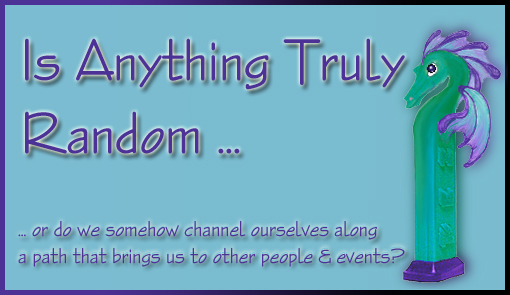STILL doesn't make sense
thc said about the last post:
It's a tightrope walk. The war in Iraq is expensive but we cannot leave before it's secure or else it's just another Viet Nam. We're already taxed to the brink so something's got to give. Unfortunately it's domestic facilities. I wish I could think of a better answer.
I certainly agree that it's a tightrope walk and at this point it's not going to be an easy exit. Also that we're taxed too much already. (I'm distressed that Pennsylvania is bringing slot machines in so that schools can get funding.)
The local military depots warehouse materials for our people - spare parts, whole parts, etc. Including nuclear-related stuff. The news has already covered how our servicepeople have to scrounge over there to outfit themselves. Again, it doesn't make sense that support facilities get downsized. Perhaps the same cannot be said of the only submarine training base the USA currently has ~ it's been put on the list to be shut down.
A while back we went to see our financial planner, after the downturn in the stockmarket. We were going to make changes, perhaps pull out altogether (it's the college fund for our twins, and had been doing quite well til then). He urged us to stick it out because the war would help out. I knew that WWII helped the USA get out of the depression, so it made sense to me at the time. But history has not repeated itself and the funds have not recovered very well.
I'm not an economist. What makes this war different? How was our economy affected by Viet Nam? Or the Gulf War?
Here's another question: do you think GW will be able to come to some sort of conclusion to this war before he finishes his term? And who would you like to see in the White House as a follow-up?




6 Comments:
Sadly, traditional wars will usually help an economy. Manufacturing plants have to work round-the-clock to provide for the troops.
To give you an economic sense of what's happened during the Iraq war, the stock market closed at 9,605 before 9/11, then dropped to 8,920 when it re-opened. It continued to drift lower until it reached 8,235. It is now at 10,647. That improvement has also tracked our economic performance when we slipped into a recession in 01/02, and have rebounded since then.
Looking at the Gross Domestic Product, a measure of all goods and services produced by the U.S., the 2004 GDP was the best in five years.
So - maybe this war is good for the economy?
(Did everyone take notes? There’s a quiz on Friday.)
The war is probably not helping the economy.
WWII happened right after the Great Depression. Factories stood empty. The government started to order stuff, and those empty factories came to life. Thousands of planes, tanks, jeeps, and trucks were built. Plants were re-tooled to make guns and bullets. Even IBM quit making typewriters and produced rifles.
This war is different. Factories have closed due to outsourcing, not a slowdown in the economy. Ford is still making cars, not army trucks. Not a single plant has been re-tooled.
When you are at or near full production war is BAD for the economy. The government competes with consumers for stuff. This just makes everything cost more.
The gains the market made over the past few years would more than likely happened even without Iraq. And these "gains" have only put us at the break even level.
How many people do you know were unemployed before the war, but now have a job making F-16s? If the answer is zero, is the economy really being helped?
Excellent point. This is not the traditional war I alluded to.
The jury is still out in my mind on whether it’s helped or not. If I were to make a case, I’d have to see us pull out our troops, wait a bit, then put numbers to it all.
Someone remind me. Hopefully, sooner rather than later.
Tax the rich. Seriously. If we taxed the wealthiest Americans at the same rates that the U.K. does, for instance, we sure would have a lot more money to work with (for all sorts of things). Instead, W. and other conservative Republicans want tax CUTS for the rich. It's a crime.
And it's a crime that so many low- and middle-income Americans have been duped into voting against their own economic interests.
Wars are usually a mixed bag, economically. They do help certain segments of the economy, but they hurt other segments of the economy. (Take a wild guess who gets hurt...)
Also, our wars are fought by low- and middle-income Americans. Without a "no exemptions" draft, the rich almost never serve. So low- and middle-income Americans have been duped into voting into office those who would tax them at a higher rate than the rich, and then send them off to, say, oil-filled countries to fight for the interests of (you guessed it) the rich.
It's really quite sad.
I know nothing of economics beyond what I learned in my freshman level classes so I'm really quite clueless.
However, I do have a couple of thoughts on the question regarding GW, the war and who would I like to see in the White House.
If Bush continues to stay his current course I don't believe we will have any resolution to the current situation in Iraq. Waning public support and pressure from those we elect into office may eventually sway the administration into a change of course but it won't be happening within the next year. The cleanup will definitley be left to the next administration, it's quite possible the resolution of the entire thing might be left to them too.
I don't know yet who I would like to see in the White House. While it is easy for me to get behind the most extreme Left people I think that Jevanking is on the right track when he talks about bridging the gap. It would be much more healthy for our country to bring the issues closer to the center. Extreme opinions and policies inflame passions but they don't really accomplish much.
War is not healthy for children and other living things.
An economy built on killing is a poor economy indeed.
Post a Comment
<< Home